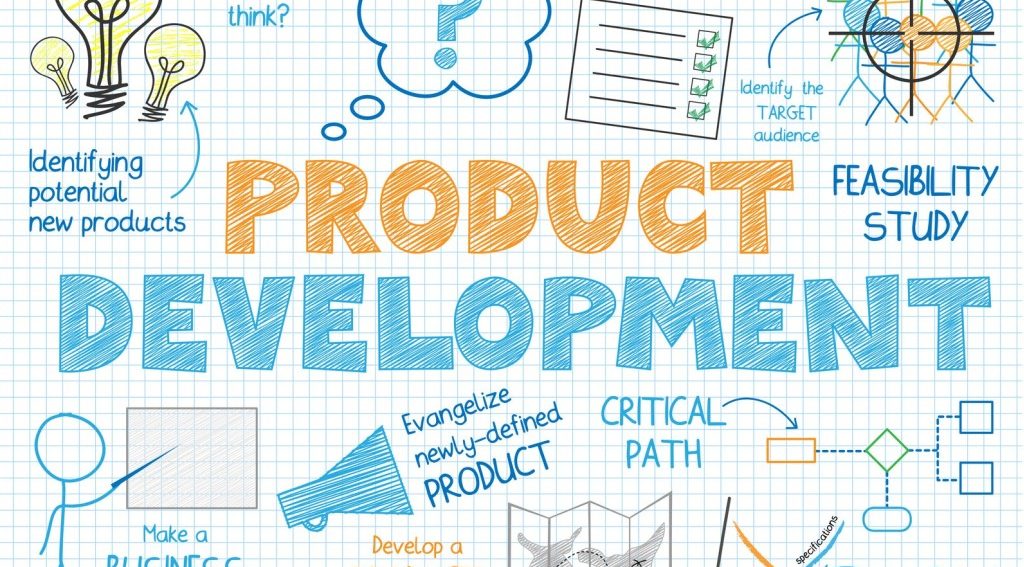Can you give me a simple definition of Coaching?
Well. Coaching is a dialog. It is a dialog between the coach and the partner (coachee), who brings the topic to the coaching session.
The aim of a coaching dialogue is for the partner to leave with more options than when he or she came to the session. It often happens – I believe, to each of us – that we get stuck, we have to make a quick decision, or we don’t know what to do next, what the next step should be. That’s when Coaching is most helpful. Together with the partner, the Coach uncovers what is essential for the partner and how to deal with it.
I think no one needs a coach at the end. Everyone can solve his or her problems. With a coach, it is just faster. It is much quicker to make the first step towards the desired goal with a coach than without him. And that might be why Coaching is beneficial in product development – in an environment where time is minimal and expensive.
What is your role as a coach in coaching dialog?
Someone might say that the role of a coach is to ask questions. I would argue that a small child also asks questions – many questions – and it does not mean that every child is a coach. A small child asks questions because he or she is curious.

A coach asks questions to help people discover the answers that are right for them. It starts with realizing what people want to achieve, how it will look like when they reach it, and what in the current situation is the best possible way to get there.
On the other hand, what is not a coach’s role is to give advice and bring solutions or to teach anyone. At least not the role of a professional coach.
What does it mean to be a professional coach?
Being a professional coach is similar to being a professional project manager. Everyone can manage projects. Many people manage projects even without being trained in project management, but that does not make them professionals. To become a professional project manager, one needs to prove his competency in project management by evidence of training, proof of practice, and following the Code of Ethics for project managers. But what is most important to become professional is the suppervison—the supervision by experienced people who guide individuals through their training, practice, and behaviors. People usually demonstrate their competence in managing projects with specific certifications provided, e.g., by IPMA.
The same is valid for a professional coach. It is not enough to have a certain level of practice to call one a coach. A professional coach is someone with evidence of proper training and proof of practice. Most of all, following the Code of Ethics for Coaches – which describes ethical principles and ethical standards of behavior. People usually demonstrate their competence in Coaching by specific certification by ICF (International Coaching Federation), EMCC (European Mentoring and Coaching Council), or local organization, for example, SAKO (Slovak Coaches Association) in Slovakia.
Please don’t take me wrong. A certificate itself does not make you a professional either. But the supervision does. Each professional had a mentor first – to guide, correct, and educate them. It takes three to seven months to become a professional coach – to fulfill at least basic requirements. During that journey, there is a lot of training, practice, and of course, supervision.
What is the benefit of working with a professional coach?
Professional coaches use coaching skills, which professional organizations usually clearly describe. All their work happens in the context of ethics, and this is a crucial point. When having a session with a professional coach, you can be sure that he handles the information provided by you discreetly and follows the concluded contract. He also observes the differences between Coaching, counseling, psychotherapy, and other support professions, so you can benefit the most from the session.
But, what about an Agile Coach?
Thanks for the question. It took me some time to understand whether Agile Coaches are coaching and what their role is. We can find on LinkedIn different kinds of coaches these days. LEAN Coach. Agile Coach. A career coach and many similar.
Coaches who use such attributes primarily act in the roles of mentors. They are in the position of experts who know the area of their expertise very well, e.g., LEAN or SCRUM. They know precisely how to direct a person or team to implement a particular method properly.
Based on my expertise and observation, I define some roles of Coach as follow:
Lean “coach” or rather LEAN-focused “Coach” is an employee or a consultant, which helps implement changes within an organization towards the LEAN manufacturing or LEAN administration.
Agile “coach” or rather AGILE-focused “Coach” is an employee or a consultant, which helps implement changes within an organization towards the agility or support scrum master in successful project management. Most of them are people who have real experience in implementing agile systems within an organization. Experienced agile coaches know the management and leadership of teams and organizations. They have partial intuitive insights into groups and organizations’ dynamics.
On the other hand, agile coaches do not have a clearly defined work content, and they do not work based on a defined code of ethics. By definition, they are supposed to coach, but nowhere is it specified what it exactly means. The most common summary is that to ask a question is better to give advice.
You mentioned that an Agile-focused “coach” has experience with managing teams. Can a professional Coach coach with a team as well?
Yes, definitely. So far, when I spoke about Coaching, I had individual Coaching in mind. However, team coaching or group coaching is also very common. And you can significantly benefit from it in product development teams.
You can use a coach for individual Coaching of the project manager on his or her main obstacles and challenges. You can then use a coach for team coaching. The teams are open to coaching interventions several times during their existence. When the team meets the first time, to set the rules for collaboration and plan the work. During the product development to adopt better learning from the last sprint for the next sprint and acknowledge the individual contribution. And in the end, for a joint Lessons Learned session to gather achievements and success. Those are only a few examples of how can Coaches work with a product development team.
How to choose a proper coach?
Again. It depends on what you expect. When you have a problem with setting up the process, you shall look for an expert who has already implemented such an approach, e.g., an agile-focused “coach.”

However, suppose you are dealing with a dilemma, efficiency, teamwork, relationships in your team, or even better retrospectives’ effectiveness. And it would be best if you dealt with it quickly. In that case, you should look for a professional coach.
Yes, and one more thing. Chemistry is also an essential factor; we should choose a coach who fits us and with whom we feel good. As diverse as people are, so are their coaches J
Can proper Coaching be delivered by using Skype, ZOOM, or other communication tools? Yes. It can. Now, even more than before. We can even say that we have a coach’s services literally on a speed dial in our phones today. The main reason is not that we have tools as ZOOM but that many people are comfortable using them these days. As there are not more options, considering all the restrictions due to COVID 19 pandemic.
Someone might say that the quality of Coaching, however, is not the same. Let me use one more similarity. I have observed that some people hate to use e-readers as Kindle to read books. They say the physical book is better than an e-book. When I ask them how many books they read per year, the most common reply is three or four.
On the other hand, I know people who read more than twenty books per year, both in physical and e-reader form. They go with what is more accessible. I guess they also prefer physical books, but that does not stop them from reading.












Replies to This Discussion